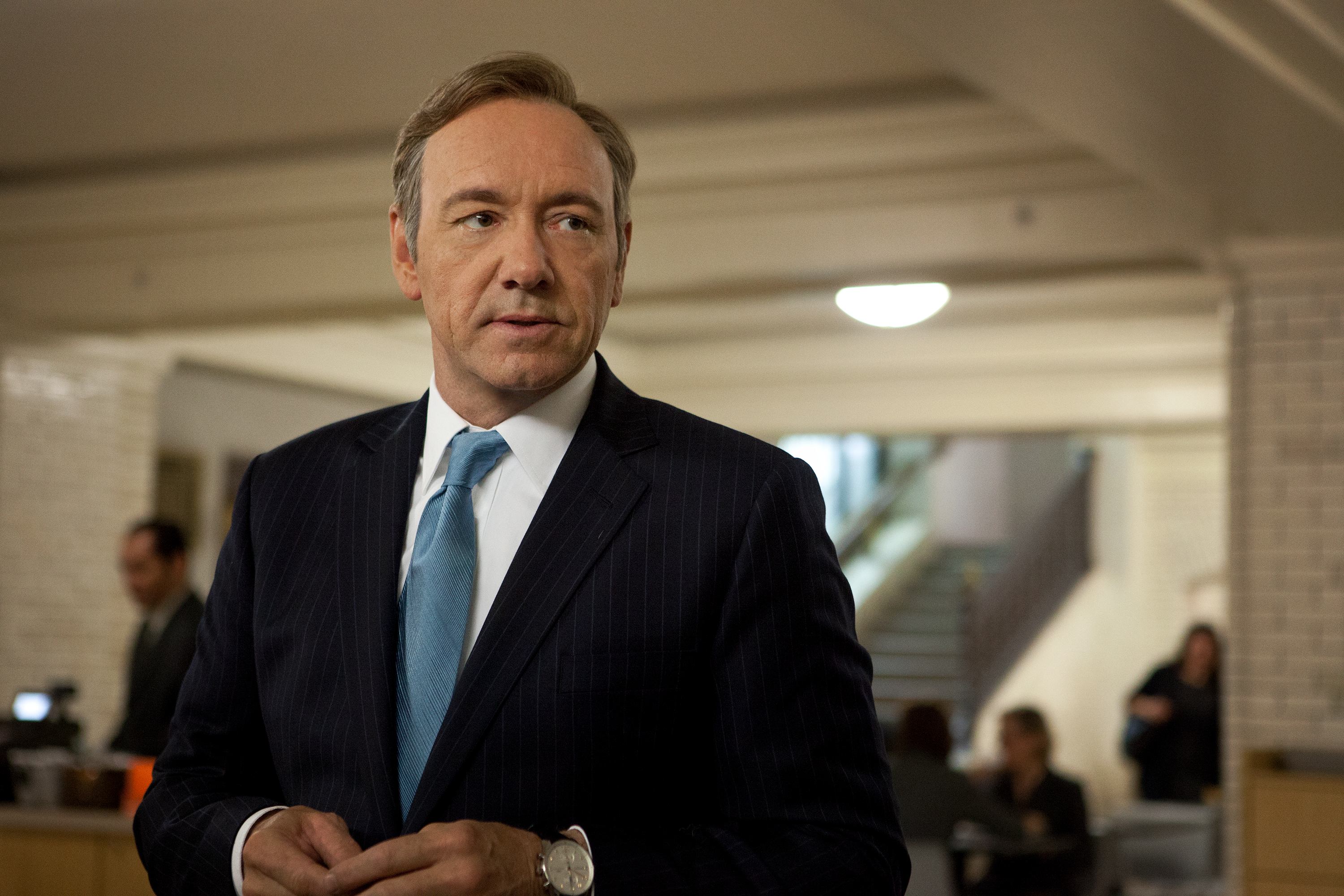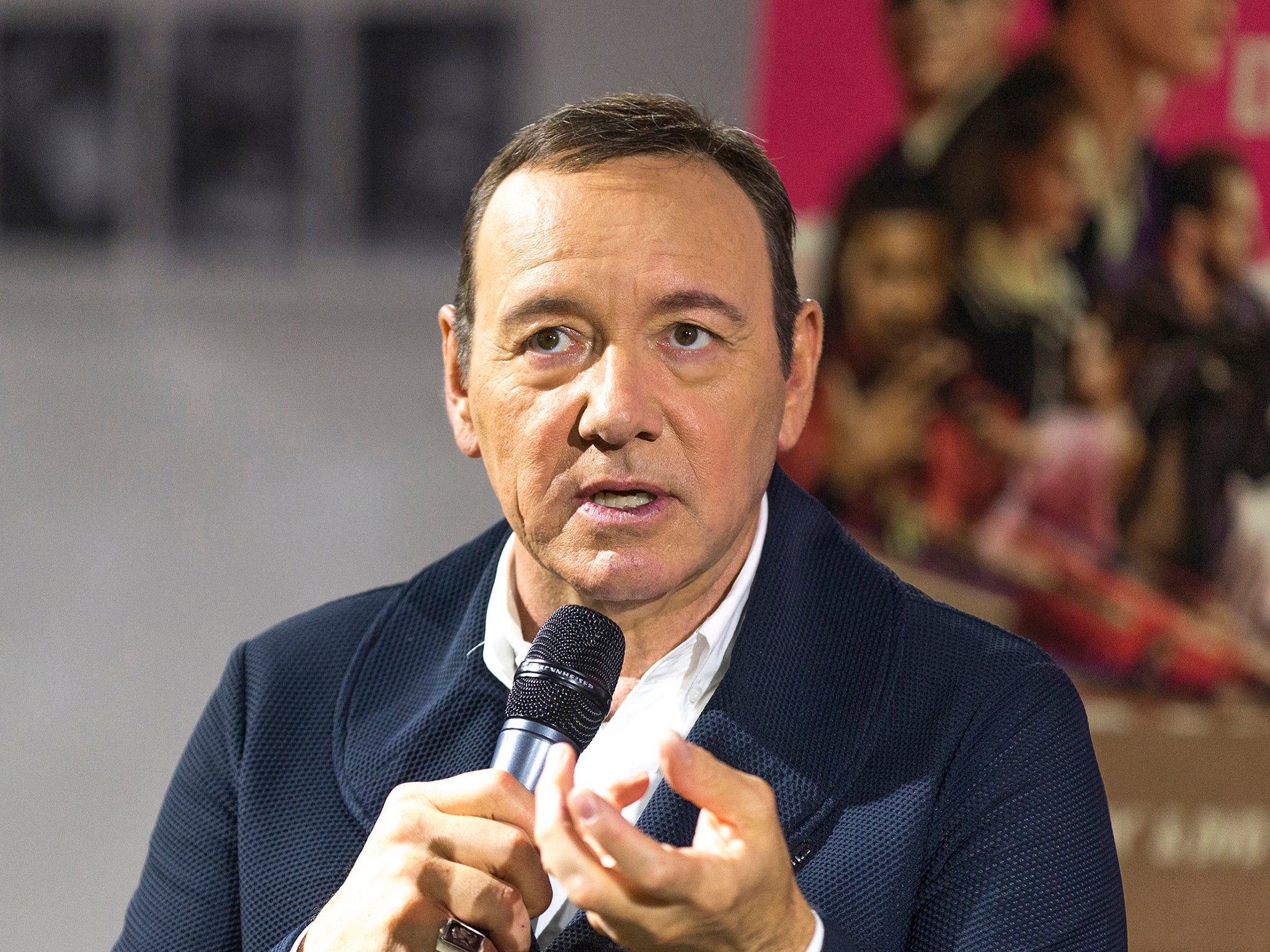Casting Kevin Spacey in a new film sends a terribly damaging message
Hiring the star to play a detective in a film, The Man Who Drew God, about a man unjustly accused of sexually abusing children, is a decision in the poorest possible taste, writes Pamela Hutchinson

Your support helps us to tell the story
From reproductive rights to climate change to Big Tech, The Independent is on the ground when the story is developing. Whether it's investigating the financials of Elon Musk's pro-Trump PAC or producing our latest documentary, 'The A Word', which shines a light on the American women fighting for reproductive rights, we know how important it is to parse out the facts from the messaging.
At such a critical moment in US history, we need reporters on the ground. Your donation allows us to keep sending journalists to speak to both sides of the story.
The Independent is trusted by Americans across the entire political spectrum. And unlike many other quality news outlets, we choose not to lock Americans out of our reporting and analysis with paywalls. We believe quality journalism should be available to everyone, paid for by those who can afford it.
Your support makes all the difference.Can a #MeToo allegation really end a career, or just put it on pause? I’m asking on behalf of a double Oscar-winner – a major Hollywood film star, whose CV also contains acclaimed work on prestige television, on Broadway and in the West End. Less than four years after more than a dozen people made serious allegations against his sexual conduct, Kevin Spacey is making a film comeback. His swift return to the screen screams a dangerous truth about showbusiness: stars and producers can thrive at the expense of the less lauded, lower-paid and more vulnerable people who work with them. Even in the most grotesque circumstances.
In late October 2017, the actor Anthony Rapp alleged that Spacey had made a sexual advance to him in 1986, when Rapp was 14 and Spacey was 26. Spacey claims not to remember the event, which Rapp says left him traumatised. The furthest Spacey went in contrition was a deeply conditional statement: “If I did behave then as he describes, I owe him the sincerest apology for what would have been deeply inappropriate drunken behaviour.” Spacey used the same statement to come out as gay, which understandably provoked waves of anger. US journalist and activist Dan Savage tweeted: “There’s no amount of drunk or closeted that excuses or explains away assaulting a 14-year-old child.” British activist Peter Tatchell told a newspaper: “His gayness is irrelevant. It’s his actions that have prompted concern.”
Rapp’s accusation was soon followed by more. Fifteen other people at least have accused Spacey of non-consensual acts, ranging from groping to sexual assault, including fellow actors, bartenders and a production assistant. The men were all young, sometimes teenagers. One man, who was 19 at the time of the alleged incident, said that Spacey tried to buy his silence with a £5,000 watch. While Spacey strongly denies these allegations and has never been convicted of a sexual offence, these voices were taken seriously enough to put an end to Spacey’s role in the Netflix drama House of Cards, and indeed his entire contract with the streaming platform. It was reported that Spacey admitted himself to a $36,000-a-month clinic to treat his “sex addiction” – the same clinic where Harvey Weinstein stayed.
For a while back there, it looked as though the industry took the testimony against Spacey very seriously. Christopher Plummer was brought in to reshoot Spacey’s part in the drama All the Money in the World. Spacey’s publicist and agent broke their connections with him, and the Emmys reversed their decision to give him a special award. Spacey’s UK charity, which aimed to help young people enter the arts, also closed its doors.
But now something has changed. Franco Nero has hired Spacey to play a detective in a film, The Man Who Drew God, about a man unjustly accused of sexually abusing children. It’s a decision in the poorest possible taste. If the worst that happens as a result of Spacey rushing back to work is that someone on set feels uncomfortable in his presence, that alone would be very regrettable. Unfortunately, it is bound to send a terribly damaging message: that it’s pointless summoning the courage to come forward with allegations about the abuse you endure in this industry, because celebrities have a way of getting out of trouble.

While Spacey has not been on a film set in just over three years, he has not been invisible, and in fact he has made his lack of remorse public. Each Christmas Eve he has posted personal videos on YouTube, in which he sometimes addresses the camera as his manipulative character from House of Cards, Frank Underwood. The effect is frequently bizarre, often creepy. The day after the second video was posted in 2019, one of his accusers, author Ari Behn, took his own life. In August that year, Spacey could be seen at the Palazzo Massimo alle Terme in Rome, reciting Gabriele Tinti’s “Poem for a Boxer at Rest”: “The more you’re wounded, the greater you are… They used me for their entertainment, fed on shoddy stuff.”
The period we are in now – with Harvey Weinstein and Bill Cosby behind bars, and Donald Trump (he of the notorious “when you’re a star they let you do it” soundbite) out of office – is sometimes referred to as post-#MeToo. But those cases may just be the tip of the iceberg. In truth, while the rush of solidarity unleashed under the hashtag first coined by Tarana Burke in 2006, seems to have slowed down, the film and television industry has not dealt with its sexual harassment problem. And vigilance is essential. Last month, Weinstein’s lawyers launched an appeal against his conviction, and stories about bullying behaviour by theatre and film producer Scott Rudin met with only muted response. In this country, a slew of horrific allegations of predatory behaviour against actor-producer Noel Clarke led to his expulsion from Bafta and the cancellation of his projects in progress.
Sadly, the whisper networks tell us it’s likely that there will be more revelations, and accusations. We can only hope that any new testimony will be greeted by compassion and action. But it may already be too late to save the careers that really were ended by instances of sexual abuse, harassment and coercion. People who were silenced by NDAs, who lost work after they were labelled as “difficult” by abusers with clout, people whose mental health was wrecked by the trauma. Sexual harassment cuts careers short. Unless you’re the one who stands accused.